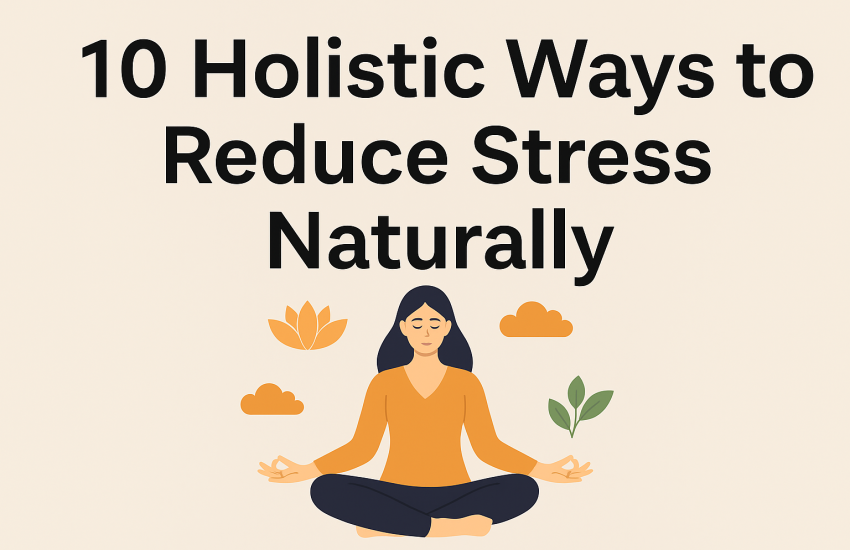Natural Stress Relief: 10 Holistic Practices That Truly Works
In today’s fast-paced world, stress has become an almost constant companion for many of us. From tight deadlines to the pressures of daily life, it can feel overwhelming. While medication may provide temporary relief, many are turning to holistic and natural methods for long-term stress management. Here are ten holistic strategies that can help you reduce stress naturally and bring more balance to your life.
1. Practice Mindful Meditation Mindfulness meditation is a powerful tool for calming the mind. By focusing on the present moment and letting go of distractions, mindfulness helps reduce anxiety and emotional reactivity. Even just 10 minutes a day can lead to noticeable improvements in mental clarity and stress resilience.
2. Engage in Deep Breathing Exercises Deep breathing activates the parasympathetic nervous system, signaling the body to relax. Techniques like box breathing or 4-7-8 breathing can quickly lower heart rate and reduce cortisol levels. Practice several times daily or during moments of tension.
3. Get Regular Physical Activity Exercise boosts endorphins, the body’s natural mood enhancers. Activities like yoga, walking, swimming, or dancing can reduce stress hormones while promoting physical and mental well-being. Aim for at least 30 minutes of movement most days of the week.
4. Embrace a Whole Foods Diet What you eat directly affects how you feel. Consuming a diet rich in fruits, vegetables, whole grains, lean proteins, and healthy fats supports stable energy and mood. Avoid processed foods and excessive sugar, which can trigger energy crashes and mood swings.
5. Try Herbal Adaptogens Adaptogens like ashwagandha, rhodiola, and holy basil help regulate the body’s stress response. These herbs support adrenal health and enhance resilience to physical and emotional stress. Always consult with a healthcare provider before starting new supplements.
6. Prioritize Quality Sleep Sleep is essential for emotional regulation and stress recovery. Aim for 7–9 hours per night and maintain a consistent sleep schedule. Avoid screens before bedtime and create a calming nighttime routine to enhance sleep quality.
7. Connect with Nature Spending time outdoors, especially in green spaces, reduces stress and boosts mood. Nature exposure lowers cortisol, improves attention span, and promotes a sense of peace. Even a short daily walk in a park can make a difference.
8. Practice Gratitude Focusing on what you’re thankful for shifts attention from stressors to positives. Keeping a gratitude journal or simply listing three things you’re grateful for each day can improve mood and build emotional resilience.
9. Foster Social Connections Meaningful relationships are crucial for emotional health. Talking with friends, family, or support groups provides emotional release and helps reduce feelings of isolation. Make time for genuine connection each week.
10. Explore Creative Outlets Engaging in creative activities like painting, writing, playing music, or crafting can act as a therapeutic release. Creativity encourages mindfulness and offers an emotional outlet, making it a powerful tool for stress relief.
Conclusion: Reducing stress doesn’t require drastic changes—small, consistent steps using holistic practices can have profound effects. By incorporating these natural strategies into your lifestyle, you can build a resilient foundation for both mental and physical health. Prioritize your well-being, and let these tools guide you toward a calmer, more balanced life.

